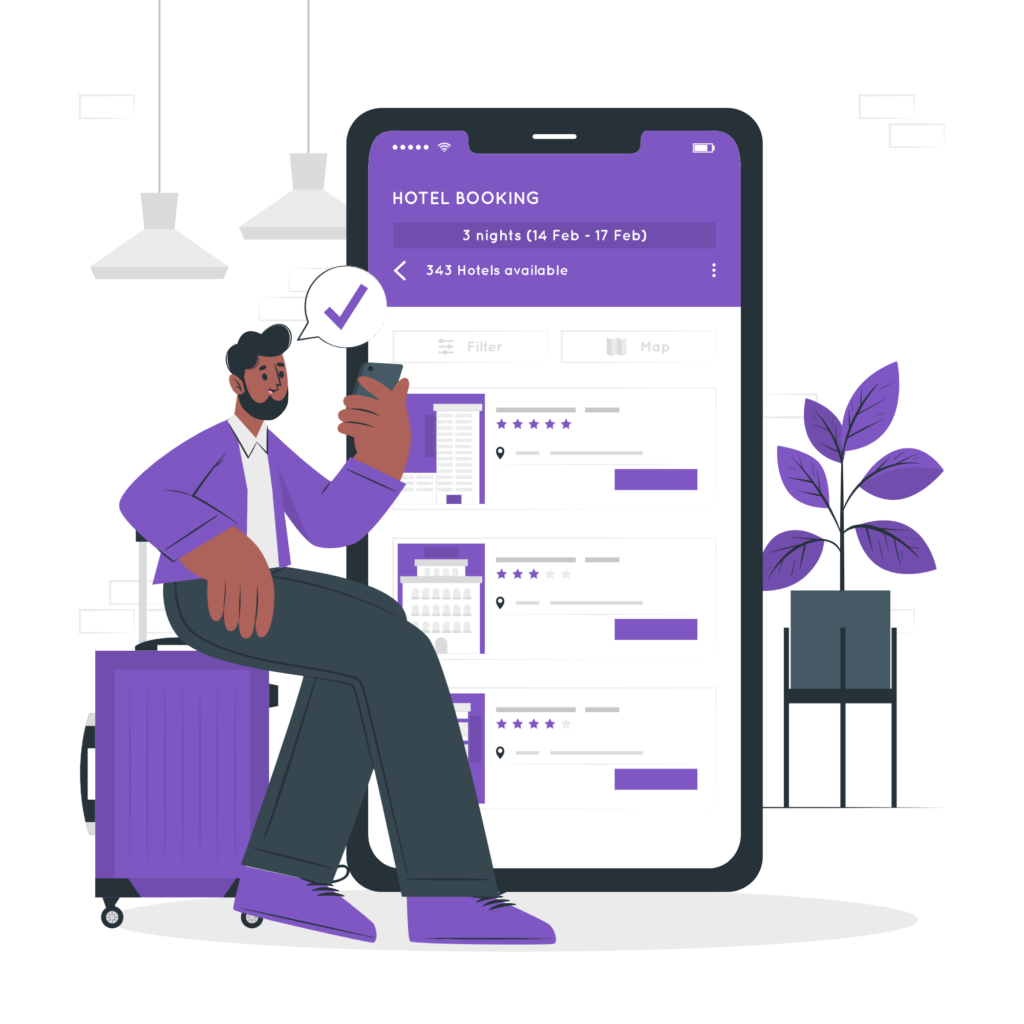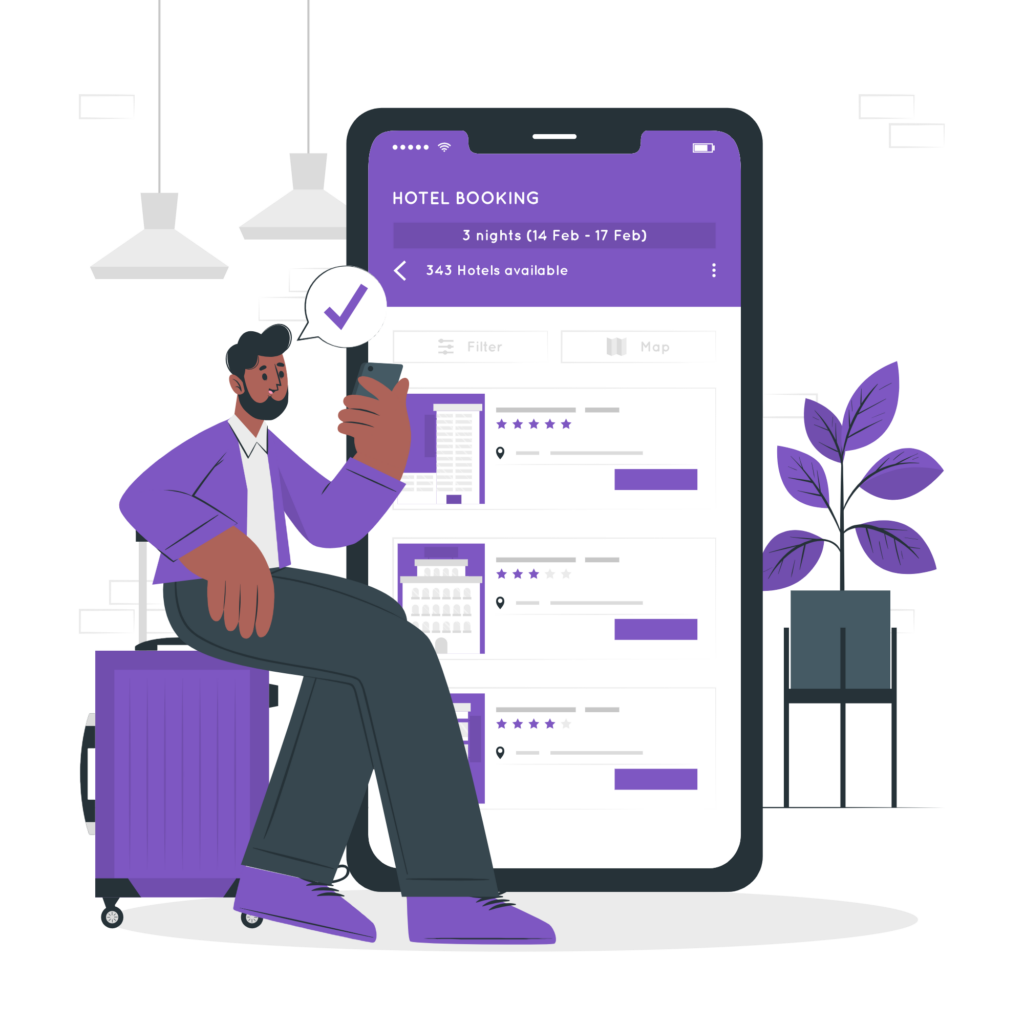Did you know that 93% of online experiences begin with a search engine? And with 95% of all natural clicks coming from the first page of Google, it’s clear: strong SEO is essential for travel websites looking to attract more visitors and bookings. The right SEO strategies can make a huge difference in this competitive field.
With Google processing over 70,000 searches every second, the opportunities for travel websites to be discovered are enormous. In fact, effective SEO can increase Internet bookings by as much as 78%. This shows how SEO can boost both customer experience and sales. It’s important to tailor SEO to each travel brand, from online travel agents to boutique hotels, to craft SEO strategies that align with your unique brand and customer base.
This guide will give you practical tips to boost your travel website’s SEO. You’ll learn how to increase your site’s organic traffic and improve its visibility and user experience, ensuring your brand stands out.
Key Takeaways
- Effective SEO can result in significant growth in organic traffic, with 95% of natural clicks originating from the first page of search results.
- Proper SEO strategies can lead to a 78% increase in Internet bookings for travel websites.
- Understanding and implementing SEO best practices is crucial for standing out in the highly competitive travel industry.
- Factors like fast page load times and the use of voice search can greatly influence a travel website’s ranking and user experience.
- High-quality content with a focus on the target audience and strong meta descriptions are essential elements of successful travel website SEO.
Understanding SEO for Travel Websites
In the travel industry, good SEO is key to getting more online visitors. The right keyword strategy can significantly increase traffic, which is especially important for travel companies competing with industry giants like Expedia and Booking.com.
Travel sites have special SEO challenges, like adjusting for seasonal changes and catering to long research times. These challenges, however, present valuable opportunities to grab the attention of potential customers. Understanding when search volume spikes allows travel brands to better plan their content and drive more targeted traffic.
The potential for growth is enormous—top UK travel websites can see up to 735,590 visits per month, demonstrating how impactful SEO can be in this space. Each booking can generate substantial revenue, especially in niches like luxury holidays or cruises, which draw in different types of travellers. But, the competition is tough, with big names taking up most of the search results. Companies like Booking.com get over 13 million visits a month. This means smaller sites need to find new ways to stand out.
SEO for travel sites also has to deal with Google’s special features, like hotel packs. These can affect how many people click on a site. Despite these hurdles, there are still many chances to improve SEO and engage with visitors. From old-fashioned travel agents to online agencies and unique hotels, each has its own SEO challenges and opportunities.
|
Key Point |
Details |
|
Traffic Potential |
An effective SEO strategy can lead to tens or hundreds of thousands of sessions monthly. |
|
Financial Impact |
High average booking values, reaching thousands of pounds, reflect the importance of SEO. |
|
Example Traffic Stats |
Top UK travel sites can achieve up to 735,590 sessions per month. |
|
Competitive Landscape |
Leading brands like Booking.com see over 13 million sessions monthly, showcasing intense market competition. |
|
Search Fluctuations |
Seasonal trends affect search volumes, requiring strategic planning and timely content updates. |
|
Business Models |
Various travel models from high street agents to OTAs need tailored SEO strategies. |
In summary, effective SEO for travel websites means understanding the unique aspects of the industry—such as seasonal shifts and extended customer research periods. By addressing these and targeting the right keywords, travel companies can significantly enhance their online presence and compete more effectively in a crowded market.
How to Do SEO for Travel Website
To get to the top, you need to master SEO for travel sites. Focus on three key areas: keyword research, quality content creation, and technical SEO. Each element plays a key role in your overall SEO strategy, helping your travel blog or site stand out in a crowded field.
Keyword Research Strategies
Keyword research is the foundation of effective SEO. Tools like Ahrefs, SEMrush, and Google’s Keyword Planner can help you find the right keywords to target. Long-tail, informational, and transactional keywords often face less competition and can drive more targeted traffic.
Understanding search intent is equally important—whether it’s informational, navigational, or transactional. Using the appropriate keywords for each intent increases your visibility to the right audience. And with more travelers using mobile phones to search and book trips, optimising your keyword strategy for mobile search habits is needed.
Content Creation and Quality
Creating quality content is essential. Make E-E-A-T (Experience, Expertise, Authoritativeness, Trustworthiness) content that meets the audience’s needs. Whether it’s blog posts, videos, or social media, every piece should be engaging and relevant.
Always aim to create quality content that adds real value. Videos are more effective than text, keeping 95% of the message. With 48% of travelers using social media to choose their destinations, shareable content can significantly boost traffic and generate valuable backlinks for your site.
Technical SEO Considerations
Technical SEO is the backbone of a strong SEO strategy. Fast page load times are key, as 40% of visitors leave if it takes more than three seconds. Make sure that your site is mobile-friendly, as mobile searches now outpace desktop, and Google prioritizes mobile-responsive websites in its rankings.
Fixing duplicate content issues and using schema markup for better local SEO are important technical steps. Schema markup helps search engines better understand your site’s content, increasing your chances of showing in rich snippets. A clean site structure also improves user experience and rankings.
By focusing on these areas, your travel website can become more visible and attract more visitors. This sets a strong foundation for success in the competitive travel and tourism industry.
Improving User Experience for Better Rankings
Improving user experience is key for better search engine rankings. Google places a strong emphasis on real human behavior, tracking metrics like bounce rate and time spent on your site.
Page load speed plays a critical role here. Faster loading times keep users from leaving prematurely, which reduces bounce rates and positively impacts your rankings.
Mobile-friendly content is also vital. With over half of searches now on mobile, having a responsive site is essential. It makes users happy, leading to more time spent on your pages.
By using data from testing and surveys, you can fine-tune both user experience and SEO performance. When SEO and UX work hand in hand, bounce rates drop, and users are more likely to stay and engage with your content.
A satisfying user experience boosts conversion rates and loyalty. It’s a win-win for both users and your brand.
Incorporating multimedia content like videos and images can further enrich the user experience, making your site more engaging and accessible—which, in turn, improves SEO performance.
|
Factor |
Impact on User Experience |
Influence on SEO |
|
Page Load Speed |
Improves user satisfaction, reduces bounce rates |
Positive impact on search rankings |
|
Mobile-friendly Design |
Enhances usability, meets user expectations |
Prioritised by search engines |
|
Quality Content |
Engages users, increases time spent on site |
Improves relevance and visibility |
|
Multimedia Integration |
Increases engagement, accessibility |
Potentially enhances SEO |
|
Usability and Navigation |
Simplifies user interaction, improves retention |
Boosts search engine indexing |
Optimising user experience is crucial for better search engine rankings. Focus on quality, speed, and mobile-friendliness. This creates a great user experience that benefits both users and search engines.
Content Marketing and Link Building
Content marketing is essential for travel sites to stand out online. It’s all about making engaging content that people want to share. This includes stories, pictures, and guides that draw in and keep visitors. It also encourages them to share on social media, which helps more people find your site.
Let’s look at how to make content that people will share and how to build links effectively.
Creating Shareable Content
Making content that people want to share is crucial. Stories and eye-catching pictures that grab your attention can inspire people share your content. This not only gets your site seen by more people but also brings in valuable links.
Understanding your audience is very important. By knowing what your target travelers are searching for, you can create content that resonates with their needs and interests. For instance, many travelers are constantly looking for destination ideas, so creating content tailored to these searches can boost engagement and traffic.
Effective Link Building Strategies
Getting links to your site is important for SEO. It helps your site look more trustworthy and can improve your ranking. One good way is to write guest posts for popular travel blogs. This expands your reach and helps you build high-quality links back to your site.
Looking at what your competitors are doing is also helpful. By examining their strategies, you can identify opportunities to improve and stand out. Collaborating with travel bloggers and influencers is another powerful way to boost traffic and secure valuable links.
Also, teaming up with industry partners can get you links from other sites. Just make sure these links are useful for your readers. Search engines value links that make the user experience better.
Conclusion
SEO for travel websites needs a complete approach. It’s about knowing the travel industry’s special challenges and how SEO keeps changing. By conducting thorough keyword research, creating great content, and focusing on technical SEO, a site can get better search engine rankings.
Improving how users experience a site is also key. This means making it work well on mobiles, being fast, and easy to use. It helps keep visitors interested and lowers bounce rates, which are important for SEO success.
Using internal links, schema markup, and getting backlinks from trusted sources also helps. It builds trust with search engines and potential customers. Keeping up with the latest SEO trends is vital, especially in a growing tourism market.
By keeping up with new tools and strategies, travel websites can stay competitive, convert more visitors into bookings, and build long-term customer loyalty. Following these SEO best practices will help boost your site’s visibility and drive success in the highly competitive travel market.



